Audio
Professor Sarah Wilson (part 1)
Ablequest by
2RPH3 seasons
14 June 2024
14 mins
Part 1 of a conversation with an Australian neuroscience research pioneer about benefits of music in brain injury recovery.

Ablequest is a series of 15 minute programs from 2RPH Sydney which examine developments in assistive technology and initiatives for people living with a wide range of disabilities.
Presented by Barbara Sullivan, Marni Roper and Elaine Wziontek.
This episode is Part 1 of a conversation with Professor Sarah Wilson, well known as a pioneer of music neuroscience research in Australia. She talks to Barbara Sullivan about how music and singing can enhance brain function and facilitate recovery after a brain injury such as a stroke.
Original broadcast date: 14.06.24
Speaker 1 00:03
With information on the latest developments in assistive technology and initiatives, 2RPH in Sydney brings you AbleQuest. Hello, I'm Marnie Roper. Whatever your personal preference in music might be, classical, blues, pop, country, techno, et cetera, listening to music enhances the lives of most people. And it has been proven that those who engage in singing with a solo or in groups, experience elevated levels of emotional satisfaction. Recent research conducted at the University of Melbourne validates the science behind this pleasurable activity. And our guest on AbleQuest today, Professor Sarah Wilson, is the driving force behind much of this research.
Professor Wilson is an internationally recognised expert in cognitive neuroscience and clinical neuropsychology. Of particular relevance to this programme, she is a pioneer of music neuroscience in Australia, showing how music can enhance brain function in healthy individuals and facilitate recovery after brain injury. She explains that music and singing include areas that control complex motor activity, auditory processing, language, emotion, and memory. And in choir singing, higher level executive function is also involved. In the first of two programmes, Barbara Sullivan spoke with Professor Wilson about the effects of music and singing on the brain.
Speaker 3 01:49
Welcome to Ablequest, Sarah, or Professor Wilson, I should introduce you as. It's wonderful that you've managed to find a little bit of time in your very packed schedule to be with us today.
Speaker 2 02:00
Thank you. It's great to be here to have this conversation.
Speaker 3 02:03
Now you're considered a pioneer of music neuroscience in Australia, exploring how music enhances brain function and aids recovery in people with acquired or degenerative brain injury. So I'd like to talk specifically about this area of your somewhat extensive neuroscientific research. Firstly, could you give our listeners some brief context and tell us what neuroscience is?
Speaker 2 02:28
Yeah, sure. I mean, that makes a very obvious place to start when we're talking about music neuroscience. So neuroscience more generally is the systematic study of the human brain. So from the basic building blocks, the neurons themselves, the gray matter and the white matter, but then how they form networks and interact and underpin different functions of our mind. So our thoughts, also our feelings, our emotions and our behaviors, how we act, our motor and outward facing activities. So it's a very, very big field and most people will specialize in a particular area of the field.
Speaker 3 03:18
And one of your areas of specialty is the neuroscience of music. So what happens to our brains when we just listen to music?
Speaker 2 03:27
It's really interesting to see what happens to the brain when we put people in the MRI scanner and we do what's called a functional MRI. And this is where we look at changes in blood flow that show us where certain areas might be more active, they've got more blood flow, other areas less involved, or they may even shut down. And we can analyse the pictures of the brain in real time while the person's lying in the scanner. And what we see is that when people lie still and listen to music, that it largely activates the auditory cortices.
So these are the areas in the brain that specialise in sound processing. And they're in a region of the brain called the temporal lobe. We don't just see that though, we also see some activation of the back of the brain in the occipital lobe, which processes visual information. And if you think about it, sometimes when you listen to music, you'll get visual and mental imagery that will come along with the sound.
Speaker 3 04:33
And memory kicks in because that music or that sound triggers certain memories often, doesn't it?
Speaker 2 04:40
That's right, which is another system yet again, so we may see some activation in what's called the Autobiographical Memory Network, which is that network of the brain that keeps a bit of a record of our lives and forms that sense of continuity to who we were in the past and who we are now. And, of course, has those salient emotional memories, you know, maybe a birthday or a wedding and the music is often core to triggering those salient memories for us so we know music plays a really important role in Autobiographical Memory.
Speaker 3 05:20
Does something different happen to our brains and body when we actually sing rather than just listen?
Speaker 2 05:27
Yes, because of course singing is a productive activity whereas listening is a more passive. It's got an active component in that we're actively processing the signal, but we're not engaging motor systems to the same degree as we are when we do immediate productive activity like singing. So additionally what comes online is activation of the motor networks, areas of the brain that control the vocal cords, our breathing, synchronous movements in time for the music, but also there's a lot of additional activity around anticipation. So if you think about when you're singing and you've got to work out when you've got to come in or there might be a break and then you've got to rejoin the music, you need to hold the music in mind and anticipate and blend with that.
So there's a range of what we call executive functions that are also drawn upon. They're like our CEO of the brain that coordinates the other networks in the brain. So it's what we consider to be a really complex human skill that we don't see to the same level in any other species.
Speaker 3 06:42
Now Sarah, is your work only with adults or do you also research how music and singing affects babies and children too?
Speaker 2 06:49
It's a great area that needs more work, looking at infants and children. We don't do it in our lab, we specialise in adults because we know that the infant, the neonate brain and the developing brain is very different from the adult brain. It has different relationships between the networks and it really still growing out those adult networks. So it's an area of specialty in its own right, but we do know broadly from the research literature into children and infants, that music essentially constitutes an enriched environment for the brain because children just naturally love music.
It's like a natural way of shaping the brain and scaffolding its healthy development. So it's highly recommended and we would be strong proponents that there should be music programs in all preschool and primary and secondary school education programs that are run. There's strong evidence that it really does enhance brain and cognitive development.
Speaker 3 07:56
So all mothers, fathers and grandparents sing regularly with them. Yep.
Speaker 2 08:01
Absolutely. And it doesn't matter how poor a singer you think you are. It's the shaping of emotional and property or, you know, intonation patterns. It's the help for working memory functions and executive skills. It's motor and auditory integration and coordination. It's doing all of these good things for the infant developing brain. And we know it's really important for bonding and social attachment.
Speaker 3 08:31
Moving on, what is it about singing in harmony in a group or choir that is different from solo singing, as you've explained it?
Speaker 2 08:39
So there's a whole additional layer now where we've got a social interaction. And before when we were talking about neuroscience, I talked about the individual brain, but of course each of our brains connects to everybody else's individual brain and that's the social neuroscience aspect, which is a much more recently emerging field of inquiry and it's a very exciting field of inquiry. And in thinking, what we see is that the parts of the brain that are important in blending are those same parts that are important for empathy and, you know, being able to put yourself in somebody else's shoes and that we've seen from work that we've done in our labs, for instance, that when we're in sync with other people rhythmically, that we are more likely to help them out.
It facilitates our empathy, it increases our social bond or connection. And so I guess this speaks to the evolutionary power of music and perhaps why we've carried it through is that it's been really vital for social cochlear and social bonding and that ability to really connect at a deeper level with each other than we might without music.
Speaker 3 10:01
Is it reasonable to think that somebody that has issues with empathy that might not have the same sort of ability to communicate with people, would they get a lot of benefit from joining a choir or joining some sort of group music exercise?
Speaker 2 10:18
Well, that's a really good question, you know, and I don't think there's been any specific studies looking at that per se. So I'd say the evidence for that is still out, but if we can take our understanding of the functions of music, we can certainly say that it leads to what we call pro-social behaviours as opposed to anti-social behaviour. So yes, if you're a more anti-social person and you're wanting to become more less anti -social, then engaging in an activity like singing together in a choir would certainly be something worth trying.
And the reason is because, you know, if you think about music, it's considered the language of emotions and how we connect to each other as human beings is predominantly in terms of our emotions. I love this idea, most people say, oh, you know, where it's all about our thinking and our cognitive abilities, but actually we are hardwired for emotions. And that's the mainstream of our experience. And then occasionally we might have a good thought, right, rather than the other way around. And music is that way of harnessing those emotions and being in shared emotional experiences together.
Speaker 3 11:36
The beneficial effects of singing in a group, choir singing or whatever, is the effect more noticeable when people are in a very emotional state, for example grief or they're very stressed or suffering from anxiety?
Speaker 2 11:49
That's a really good question as well. There's this paradoxical effect in the literature, which hasn't been fully explained as yet, but it's this idea that people seek out sad music, and why would people do that? I mean, why would people seek out wanting to be sad? And it's not true of everyone. Not everyone has a preference or a liking of sad music. It's a subgroups of people in the community. But the kind of idea that's emerging from that research area is this notion that music is quite cathartic, so it can allow us to experience emotions that are very hard to put into words.
And we can have that shared emotional moment with someone through the music that we might not have otherwise been able to. Now that might be an intense emotion of grief, or it could be singing the soccer team victory song together with everyone in the crowd after our favorite team has won the cup. So I don't think the bonding so much is dependent on the emotion per se, although there is something still yet to explain about this musical paradox of what draws some people together to want to share their grief that way. And we do know that's a really powerful way of processing emotions, because music has this direct line in to emotions that you wouldn't have otherwise, so it can be very therapeutic for people to do that.
Speaker 1 13:31
Barbara has been speaking with Professor Sarah Wilson, renowned music neuroscientist. It was the first part of the conversation. Join us next time to hear Professor Wilson explain how music therapy can help the language recovery of people with acquired brain injury, such as stroke.
You have just been listening to AbleQuest, a program that looks at developments in assistive technology. From Barbara Sullivan and Marnie Roper, thank you for listening and goodbye till our next program.
Continue listening

Blind Sports Australia CEO Matt Clayton speaks about its work with blind and vision impaired athletes across 21 sports.
Matt Clayton - Blind Sports Australia
Ablequest by 2RPH
5/5/2023
•13 mins
Audio

Vivid, Sydney's celebration of creativity, seen from a disability access focus by its director.
Gill Minervini - Vivid
Ablequest by 2RPH
19/5/2023
•14 mins
Audio

This program discusses dance movement therapy and how it works - featuring Cecilia King of the Dance Therapy Association.
Cecilia King - Dance Therapy
Ablequest by 2RPH
14 mins
Audio

What are the challenges of providing audio description on Oz TV? Hear Lauren Henley, Aust Federation of Disability Organisations.
Lauren Henley - Audio Description
Ablequest by 2RPH
16/6/2023
•14 mins
Audio

In Part 1 of a 2RPH interview, assistive tech expert David Woodbridge explores latest innovations to make everyday life easier.
David Woodbridge - Tech Update Part 1
Ablequest by 2RPH
30/6/2023
•14 mins
Audio

Features Robert Duff-Silsby of Luddi, Perth company developing assistive devices for all people and bodies.
Robert Duff-Silsby - Sexual Wellbeing
Ablequest by 2RPH
13 mins
Audio

In Part 2 of this conversation with 2RPH's Ablequest, expert David Woodbridge reviews latest assistive technologies.
David Woodbridge - Tech Update Part 2
Ablequest by 2RPH
28/7/2023
•14 mins
Audio

Matt Clayton of Blind Sports Australia and the Oz team's Chef de Mission, discusses the forthcoming World Blind Games in the UK.
Matt Clayton - World Blind Games
Ablequest by 2RPH
11/8/2023
•13 mins
Audio

Prof Kim Marriott of the Monash Assistive Technology and Society Centre, talks about the purpose and work of the Centre.
Kim Marriott - Monash Assistive Technology and Society Centre
Ablequest by 2RPH
25/8/2023
•13 mins
Audio

Ablequest features an interview with Serena Ovens, new CEO of Assistive Technology Supplies Australia or "ATSA".
Serena Ovens - Assistive Technology Supplies Australia
Ablequest by 2RPH
14 mins
Audio

Part 1 of an interview on the voice-activated app, Bindi Maps.
Anna Wright - Bindi Maps (Part 1)
Ablequest by 2RPH
14 mins
Audio

This is Part 2 of an interview with Dr Anna Wright, explaining how Bindi Maps works.
Anna Wright - Bindi Maps (Part 2)
Ablequest by 2RPH
14 mins
Audio

Artist Ebony Wightman of disability-led We Are Studios talks about art and challenge.
Ebony Wightman - We Are Studios
Ablequest by 2RPH
20/10/2023
•13 mins
Audio

Prof. Leeanne Carey discusses the SENSe program, her team's world-first therapy to help stroke survivors.
Leeanne Carey - SENSe Therapy
Ablequest by 2RPH
2/11/2023
•13 mins
Audio

Youthworks Accessibility Minister Bec Baines talks of making church accessible to young people with disabilities.
Bec Baines - Youth and Worship
Ablequest by 2RPH
16/11/2023
•14 mins
Audio

Nikki Hind, Australia's first blind fashion designer, discusses her work.
Nikki Hind: Blind Grit
Ablequest by 2RPH
1 December 2023
•14 mins
Audio

Dr Dimity Williams, family GP, recommends spending more time in nature - and a "green hour" each day.
Green Hour: Dr Dimity Williams
Ablequest by 2RPH
5 December 2023
•14 mins
Audio

Imagine sitting in a wheelchair for hours, being unable to move your fingers or arm to do simple things like pick up a glass.
Konstanze Hager - Bateo
Ablequest by 2RPH
Konstanze Hager - Bateo
•14 mins
Audio

Action Audio is a new language being created to transcend sport.
Machar Reid - Action Audio
Ablequest by 2RPH
Machar Reid - Action Audio
•14 mins
Audio

What a difference one person with experience, passion and energy can make to many lives.
Julie Ross-Edwards - Head High
Ablequest by 2RPH
Julie Ross-Edwards - Head High
•14 mins
Audio

Driver educator outlines what's needed for a person with disability to get a driver's licence.
Ronak Shah: on-road driving education
Ablequest by 2RPH
12 January 2024
•14 mins
Audio

Vision Australia's Christo Sarantakis talks of his life, blindness and assistive tech changes.
Christo Sarantakis of Vision Australia
Ablequest by 2RPH
26 January 2024
•14 mins
Audio

Introducing Australia's first pictureless feature film, TOUCH, showing in Sydney.
Majella Knobel: "Touch" - open air movie
Ablequest by 2RPH
9 February 2024
•14 mins
Audio

An expert discusses the use of horticultural therapy for people with disabilities.
Steven Wells: horticultural therapy
Ablequest by 2RPH
23 February 2024
•14 mins
Audio

Features articles on latest blind-assistive tech including a new bus app and smart ear buds.
Assistive tech news catchup
Ablequest by 2RPH
8 March 2024
•14 mins
Audio

Features an innovative hospitality industry training program for people with disabilities.
Saraya O'Connell - Hotel Etico Independence Program
Ablequest by 2RPH
22 March 2024
•14 mins
Audio

Guests discuss the Obi robotic dining assistant for people with upper arm disabilities.
Hugh Kingley and Rachel Dekkar: Obi
Ablequest by 2RPH
19 April 2024
•14 mins
Audio

A spy-themed computer program tackles the mystery of social encounters - outlined by its company's CEO.
Kathleen Davey - Social Science Translated
Ablequest by 2RPH
3 May 2024
•14 mins
Audio

A Sydney organisation delivers creative arts and life skills to people with disabilities.
ChoppA Green - Studio Artes
Ablequest by 2RPH
17 May 2024
•14 mins
Audio

An award-winning Central Coast NSW disability service shares its successful strategies.
Lonestar Makoni - Breaking Barriers Disability Services
Ablequest by 2RPH
31 May 2024
•14 mins
Audio

Part 1 of a conversation with an Australian neuroscience research pioneer about benefits of music in brain injury recovery.
Professor Sarah Wilson (part 1)
Ablequest by 2RPH
14 June 2024
•14 mins
Audio

Part 2 of a conversation with a leading neuroscientist of benefits of music in brain injury recovery.
Professor Sarah Wilson (part 2)
Ablequest by 2RPH
28 June 2024
•14 mins
Audio

A CEO talks about his company's award-winning assistive physical therapy device.
Justin Keenan - LusioMate
Ablequest by 2RPH
12 July 2024
•14 mins
Audio

Information about a program teaching good cyber-security practices to make daily life safer.
Jess Wilson: Be Connected
Ablequest by 2RPH
26 July 2024
•14 mins
Audio

A veteran print disability broadcaster with macular degeneration shares her experiences.
Teresa Plane - 2RPH
Ablequest by 2RPH
9 August 2024
•14 mins
Audio

The founder of a blind-assistive technology company shares latest developments.
Peter Ford - Control Bionics (part 1)
Ablequest by 2RPH
6 September 2024
•14 mins
Audio

Part 2 of an interview with the head of an innovative blind-assistive technology company.
Peter Ford - Control Bionics (part 2)
Ablequest by 2RPH
20 September 2024
•13 mins
Audio

Looks at a project to better inform refugee and migrant women on AI.
Good Things - Jess Wilson
Ablequest by 2RPH
4 October 2024
•14 mins
Audio

An expert with lived experience corrects some widespread misconceptions about stuttering.
Dale Williams - Stuttering Awareness Day
Ablequest by 2RPH
18 October 2024
•14 mins
Audio

An inventor discusses his an innovative cane tip to help people with blindness or low vision.
Peter Rickards - Sensaball
Ablequest by 2RPH
15 November 2024
•13 mins
Audio

Part 1 of an interview with an Australian expert on low-vision-assistive technology, on AI and other developments.
David Woodbridge (part 1)
Ablequest by 2RPH
29/11/2024
•14 mins
Audio

Conclusion of an interview with a leading Australian expert on blind-assistive technology.
David Woodbridge (part 2)
Ablequest by 2RPH
13 December 2024
•14 mins
Audio

Looks at the leading stroke treatment work of the Royal Rehabilitation Hospital, Ryde NSW.
Jason Redhead and Graham Cooper of Royal Rehab Ryde
Ablequest by 2RPH
10 January 2025
•14 mins
Audio

An innovative social media platform aims to address isolation and loneliness in the disability community.
Steve Bear - Alvie
Ablequest by 2RPH
7 February 2025
•12 mins
Audio

Australia's largest provider of Auslan sign services outlines its important work.
Brett Casey - Deaf Connect
Ablequest by 2RPH
21 February 2025
•14 mins
Audio

Looks at an Australian organisation's work at helping men seek help and build self-awareness.
Tommy Herschell - Find Ya Feet
Ablequest by 2RPH
7 March 2025
•14 mins
Audio

A speech pathoplogist discusses her work with young people's complex communication needs.
Denise West - Scope
Ablequest by 2RPH
21 March 2025
•14 mins
Audio

A vision-impaired disability rights advocate talks of her work and learning podcast skills.
Freya Wolf
Ablequest by 2RPH
4 April 2025
•14 mins
Audio

A leading Australian eye researcher talks of his team's work in creating new hope for people with retinal damage.
Raymond Wong - Centre for Eye Research Australia
Ablequest by 2RPH
18 April 2025
•14 mins
Audio

A wheelchair-using business owner, facilitator and car rally driver shares experiences and insights.
Mel Harrison - Sitting Low, Reaching High
Ablequest by 2RPH
2 May 2025
•13 mins
Audio

Disability Pride Month in July promotes awareness about people with disability and also celebrates individuals with disability.
Hannah Solomons - Sydney Disability Pride
Ablequest by 2RPH
Hannah Solomons - Sydney Disability Pride
•14 mins
Audio

Deb Roach is a three-time pole dancing world champion yet she has only one arm.
Deb Roach
Ablequest by 2RPH
Deb Roach
•13 mins
Audio
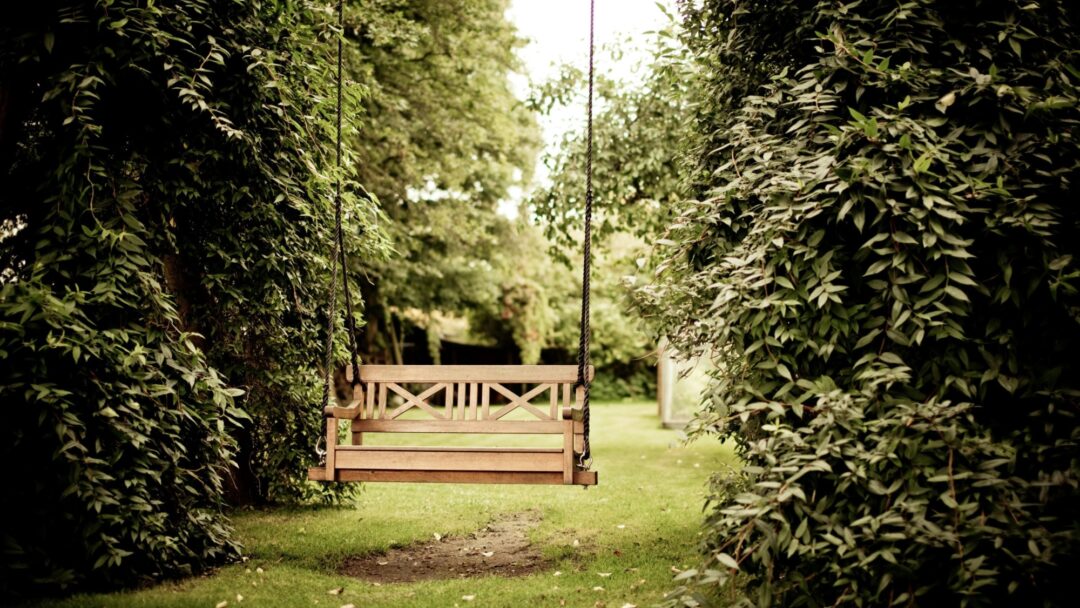
Being in nature is good for you whether it is being in the garden or walking along the beach.
Kayte Kitchen - Admirari Nature Therapy
Ablequest by 2RPH
Kayte Kitchen - Admirari Nature Therapy
•14 mins
Audio
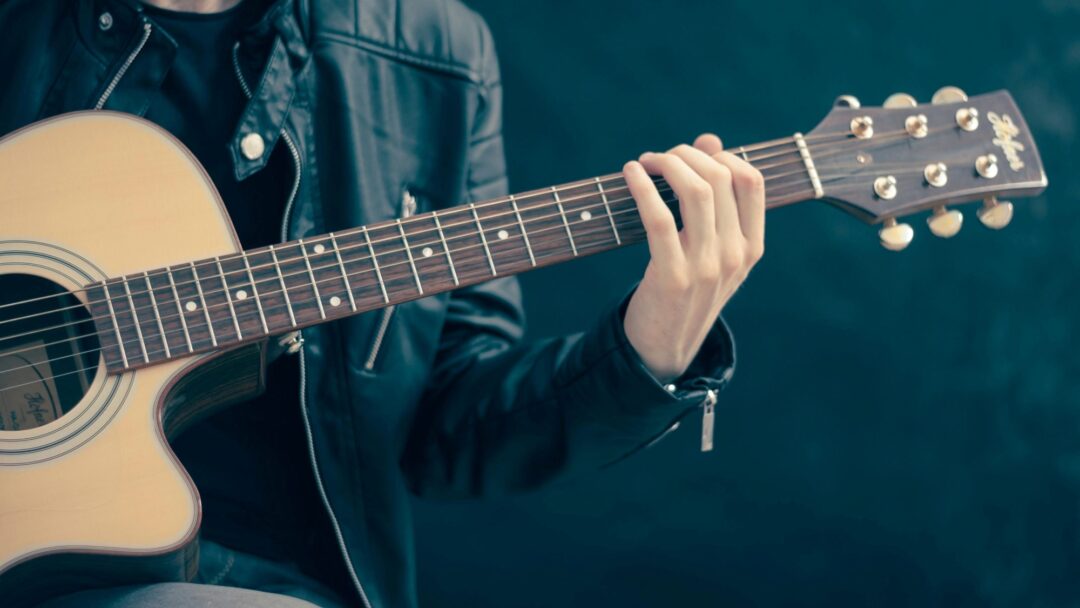
Music can evoke emotions that bring back memories and the same is true for people living with dementia.
Zara Thompson - Music Therapy
Ablequest by 2RPH
Zara Thompson - Music Therapy
•14 mins
Audio
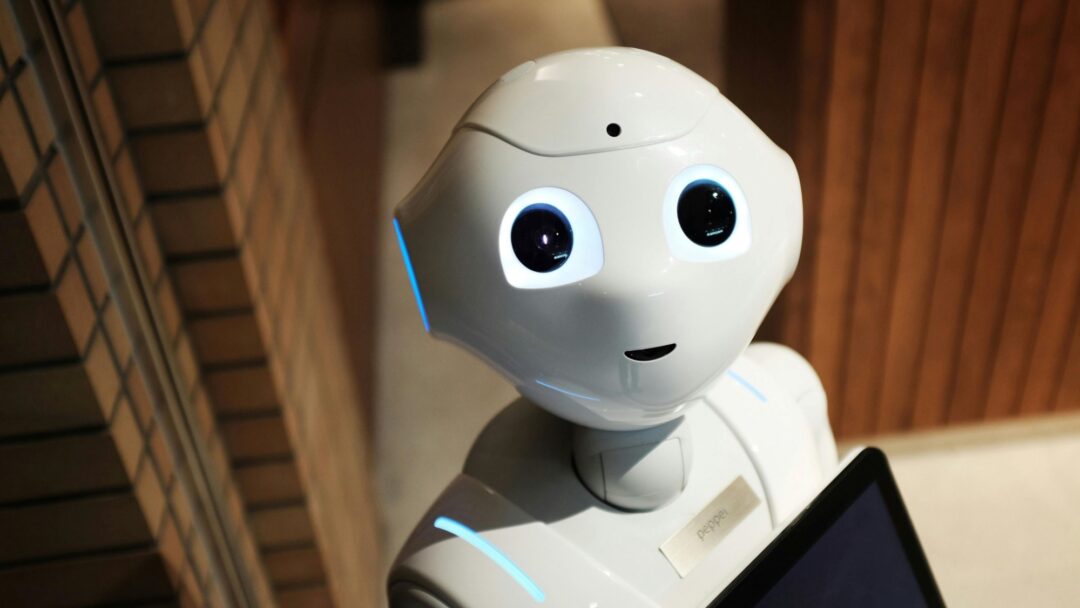
Laura Boccanfuso is founder and CEO of Van Robotics, a social robotics company based in South Carolina in the United States.
Laura Boccanfuso - Van Robotics
Ablequest by 2RPH
Laura Boccanfuso - Van Robotics
•14 mins
Audio

Two years ago Maggie O'Connell, in her mid 20's never had a full time job.
Maggie O'Connell - AFP
Ablequest by 2RPH
Maggie O'Connell - AFP
•14 mins
Audio
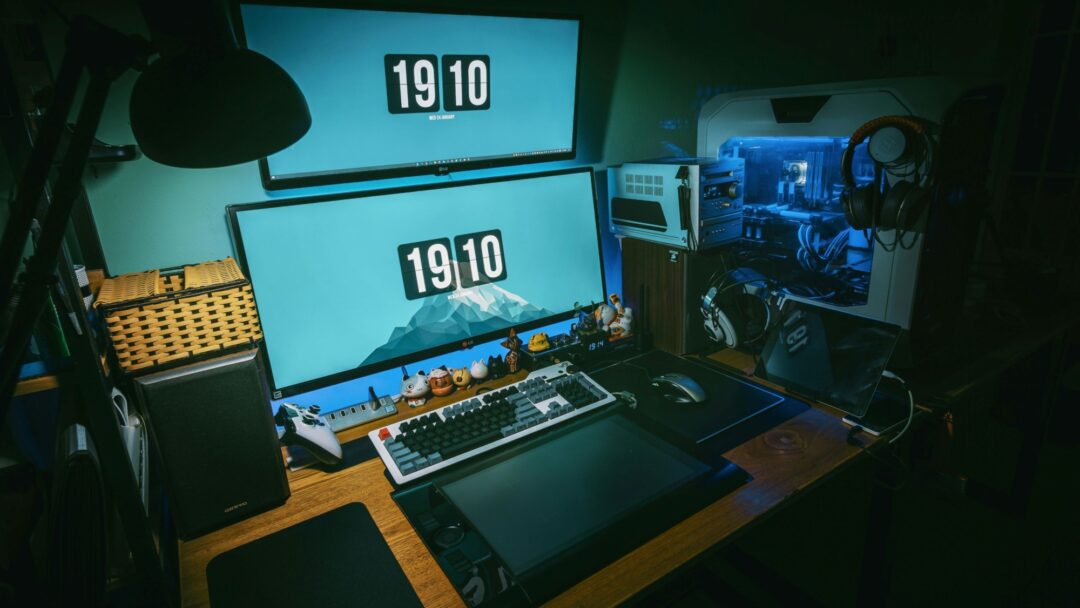
Julie Ross-Edwards, founder of Head High Disability Services, returns to Ablequest to speak more about Head High's philosophy and special approach.
Head High (Update)
Ablequest by 2RPH
Head High (Update)
•13 mins
Audio
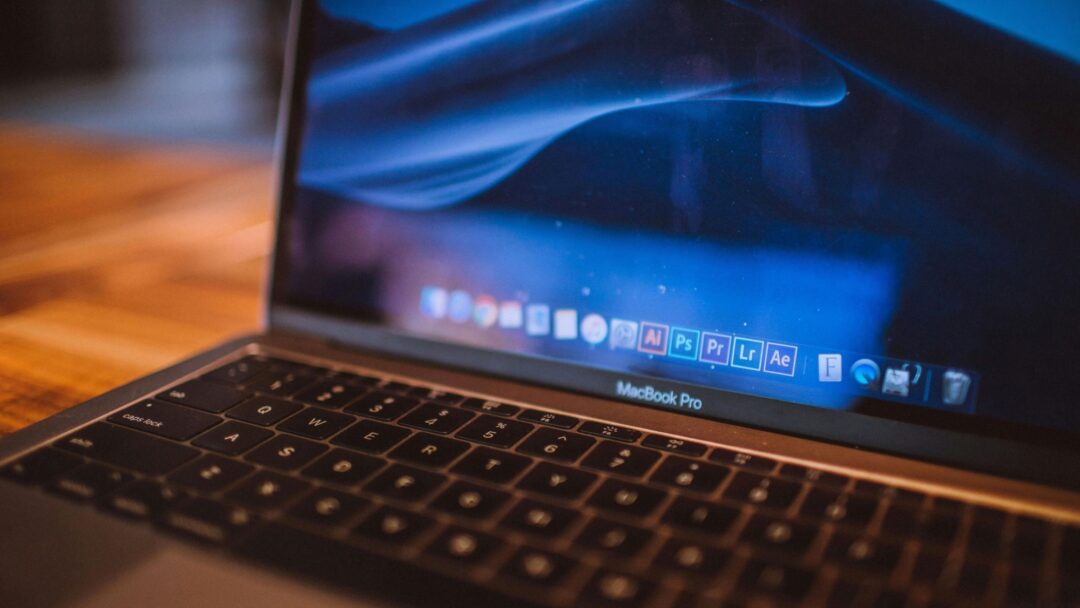
David Woodbridge, an expert in assistive technology for people with no or low vision, is a regular guest on Ablequest.
David Woodbridge
Ablequest by 2RPH
David Woodbridge
•14 mins
Audio

Pete Horsley is the Founder of Remarkable, a global start up and initiative of the Cerebral Palsy Alliance.
Pete Horsley - Remarkable Disability Tech Summit
Ablequest by 2RPH
Pete Horsley - Remarkable Disability Tech Summit
•14 mins
Audio